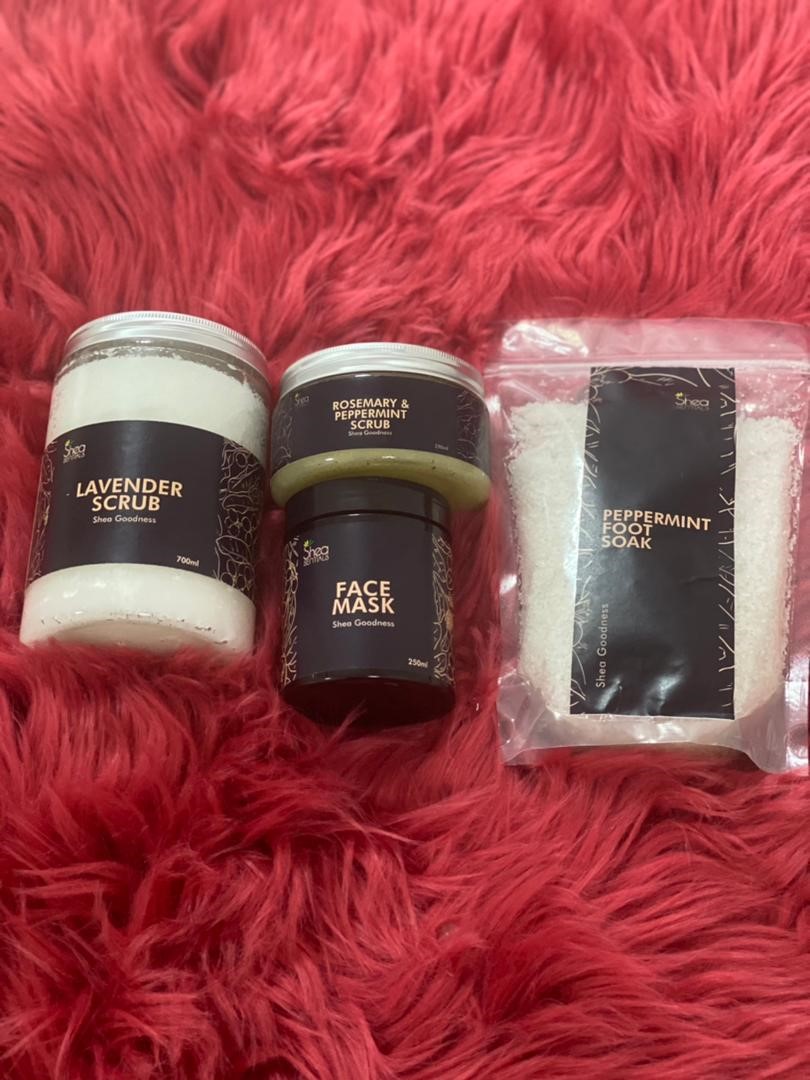
Do you know that chemicals found in beauty products can be damaging throughout their entire life cycle, from the way they are produced and used by consumers, to the methods of their disposal and their negative impact on the environment?
But the good news is that there are more naturopathic skin care products available now than ever produce locally, and their long list of benefits beyond even great looking skin might come as a surprise to you. When you use natural products like this regularly, not only are you beautifying your skin, but you’re also absorbing antioxidants, enhancing your skin’s UV resistance, and stimulating your immune system, too.

According to Levy, (2015) applying unprocessed, whole-food ingredients onto your skin will make you love your skin, even if you are someone who has sensitive skin or has struggled in the past with clearing up difficult skin-related problems.
Scientific studies supporting some top natural skin care products:
- Coconut Oil
According to Levy (2015), one of the most versatile skin (and food) ingredient is coconut oil. It helps in strengthening underlying epidermal tissue, removing dead skin cells, protecting from sunburns, and containing antibacterial, antiviral, antifungal and antioxidant properties. One study by Evangelista et al., (2014) demonstrates that coconut oil is effective against chronic skin diseases characterized by defects in the epidermal barrier function and cutaneous inflammation, including atopic dermatitis (AD).
- Tea Tree Oil
Axe, (2018) explained that, Tea tree oil uses include working as a natural anti-inflammatory, anti-bacterial, antimicrobial and anti-fungal. The phytochemicals make it one of the most versatile and popular natural skin care essential oils there is. Tea tree’s volatile essential oils come from about 230 different plant species, almost all of which are native to Australia. According to research, there are over 100 different chemical components and volatile hydrocarbons that are considered aromatic and capable of traveling through air, pores of the skin and mucus membranes to provide healing benefits. This is why tea tree oil is effective against acne.
- Apple Cider Vinegar
One study by Johnston et al., (2006) found that apple cider Vinegar is effective against skin problems. It also contains very beneficial acetic acid and certain vitamins like potassium and magnesium. This makes it a detoxifying agent when consumed internally, as it improves liver function and helps balance bacteria in the gut.

- Raw Honey
Raw honey is unheated, unprocessed and unpasteurized unlike most honeys available in grocery stores. Hence, all the nutrients are intact as they’re not destroyed by processing. This was stressed in one study by Burlando et al., (2013) which demonstrates that raw honey is antimicrobial honey and effective for wounds and burns. It’s also effective against bacterial infections, dandruff, diaper dermatitis, psoriasis and more.
It is also an effective natural skin care product and can be used in facial cleansers even on sensitive or mixed skin types.
- Sea Salt
Sea salt is loaded with minerals and nutrients like magnesium, calcium, sodium and potassium that it absorbs from the sea water where its produced. Many of these minerals are the same ones found in our skin cells and within our bodies, which is exactly why real sea salt can help balance, protect and restore the skin says, Levy (2015).
The salt contains anti-inflammatory properties to soothe skin and calm breakouts, remove dead skin cells and irritation, balance oil production, and help the skin retain moisture levels.
- Avocado
Avocadoes contain vitamins A, D and E that are able to penetrate the skin. It helps soothe sunburned skin, can boost collagen production and treat age spots. It also works to reduce inflammation of the skin when applies topically and can do the same internally when eaten.
- Lemon Essential Oil
A study by Fisher et al.,2006 found that lemon essential oil is a strong antibacterial constituent capable of reducing even fatally dangerous bacteria strains, as well as diminish acne breakouts caused by high levels of bacteria stuck in pores. It’s also effective against fading scars and age spots, can exfoliate skin, brighten and lighten skin, tone oily skin and fight wrinkles.
- Argan Oil
Native to Morocco and used there for generations, argan oil is so healing because it’s rich in vitamin A and vitamin E, various antioxidants, omega-6 fatty acids and linoleic acid. Levy, (2015) stressed that, Argan is not only great for gently moisturizing skin, but it also boosts the shine and health of your hair.
- Aloe Vera
Recent research by Feily and Namazi, 2009 found that aloe vera is effective for burns and wound healing, but surprisingly it also detoxifies you from the inside out.
Aloe vera plants produce two substances used for medicine: the gel found in the cells in the center of the leaf, and the latex that’s obtained from the cells just beneath the leaves’ skin. These can be used as a natural skin care remedy for burns, frostbite, psoriasis and cold sores according to Levy, 2015.
Feily and Namazi, 2009 study further stressed that, Aloe vera is regarded to be the most biologically active form of the Aloe barbadensis miller species and holds more than 75 potentially active ingredients including anti-inflammatories, vitamins, minerals, saccharides, amino acids, fatty acids, enzymes, lignin and salicylic acids. They give aloe its signature anti-microbial and antifungal properties that make it a “photodynamic therapy” for healing skin.
- Jojoba Oil
Jojoba oil is effective against burns, sores, scars, dermatitis, acne psoriasis and wrinkles. It’s also used to reduce balding because it encourages hair regrowth, soothes the skin and unclogs hair follicles. Levy, (2015) has this to say: “When it comes to the chemical structure of jojoba oil, it’s unique in that it’s a polyunsaturated wax. As a wax, jojoba oil is especially useful for protecting the skin, providing moisture control, and soothing the skin and hair”.

- Almond Oil
Almond oil has anti-inflammatory, antiviral, antibacterial, and antiseptic properties. Hence, it’s a good oil for essential oils to naturally treat skin rashes, acne or dryness.
- Shea Butter
Shea butter has been used as a natural skin care product in Africa for hundreds of years, where it is still largely cultivated and shipped around the world today. It makes an excellent moisturizing options for dry skin types and is inexpensive yet effective at reducing flaking, redness or peeling.
- Castor Oil
Its effective for skin, castor oil is actually a “drying oil,” even though that might seem counterintuitive.
- Olive oil
Olive oil contains many nutrients that can inhibit or kill harmful bacteria. Test-tube studies conducted by Romero et al.,2007 have shown that extra virgin olive oil fights eight strains of this bacterium, three of which are resistant to antibiotics. Interestingly, one study by Castro et al., (2012) in humans suggested that 30 grams of extra virgin olive oil, taken daily, can eliminate Helicobacter pylori infection in 10–40% of people in as little as two weeks
- Frankincense oil
Calzavara-Pinton et al., (2009) study found that this ancient oil can reduce the appearance of scars and stretch marks, and it seems to have the same effect on wrinkles and fine lines. In this study, researchers instructed study subjects to apply frankincense oil to one side of their face for thirty days. The treated side revealed significant improvement in sun damage, skin texture and fine lines as well as an increase in skin elasticity. The secret behind its effectiveness is likely its inflammation-fighting ability.
- Pomegranate seed oil
One study by Park et al., (2010) found that pomegranate seed offers powerful protection from sun damage, and actually inhibits the devastating UVB-induced damage, thereby protecting collagen.
- Lavender oil
Research shows that lavender essential oil triggers the production of three of your body’s most powerful antioxidants: glutathione (known as your body’s master antioxidant), catalase and superoxide dismutase. When cells are under stress, including fibroblasts, it’s glutathione that comes to the rescue. Levy, (2015) stressed: ‘Lavender oil is also helpful for wound healing, because it triggers protein synthesis, including collagen”.
- Turmeric Oil
Turmeric has been known for its amazing beauty and health benefits. But did you know that the turmeric essential oil extracted from the roots of turmeric plant is as beneficial as turmeric? Turmeric essential oil is rich in antioxidants and has potent anti-inflammatory properties. The essential oil has abundant antioxidants and has anti-allergic, anti-bacterial, anti-microbial, anti-fungal qualities which works like a miracle on your skin and hair.
Take home
Before adding essential oils to your daily regimen, be sure to read up on essential oil safety so you know which essential oils can go directly on your skin, which essential oils should be diluted, the ones to avoid during pregnancy and the essential oils that are bad for your skin. In Ghana, Shea Sentials is one agency producing organic Naturopathic skin care product.
The writer is on a mission to provide you and your family with the highest quality nutrition tips, scientific herbs and healthy recipes in the world.
The writer is an honorary Professor of Naturopathy Holistic Medicine, a chartered Management Consultant (ChMC), Chartered Institute of Management Consultant, Canada, President, Nyarkotey College of Holistic Medicine and currently, LLB level 300 law student. Contact: 0241083423/0541234556
References
- Calzavara-Pinton P, Zane C, Facchinetti E, Capezzera R, Pedretti A. Topical Boswellic acids for treatment of photoaged skin. Dermatol Ther. 2010 Jan-Feb;23 Suppl 1:S28-32. doi: 10.1111/j.1529-8019.2009.01284.x. PMID: 20136919.
- Jillian Levy(2015) 13 Best Ingredients for Your Natural Skin Care Ritual. https://draxe.com/beauty/natural-skin-care/
- Park HM, Moon E, Kim AJ, Kim MH, Lee S, Lee JB, Park YK, Jung HS, Kim YB, Kim SY. Extract of Punica granatum inhibits skin photoaging induced by UVB irradiation. Int J Dermatol. 2010 Mar;49(3):276-82. doi: 10.1111/j.1365-4632.2009.04269.x. PMID: 20465664.
- Romero C, Medina E, Vargas J, Brenes M, De Castro A. In vitro activity of olive oil polyphenols against Helicobacter pylori. J Agric Food Chem. 2007 Feb 7;55(3):680-6. doi: 10.1021/jf0630217. PMID: 17263460.
- Feily A, Namazi MR. Aloe vera in dermatology: a brief review. G Ital Dermatol Venereol. 2009 Feb;144(1):85-91. PMID: 19218914
- Evangelista MT, Abad-Casintahan F, Lopez-Villafuerte L. The effect of topical virgin coconut oil on SCORAD index, transepidermal water loss, and skin capacitance in mild to moderate pediatric atopic dermatitis: a randomized, double-blind, clinical trial. Int J Dermatol. 2014 Jan;53(1):100-8. doi: 10.1111/ijd.12339. Epub 2013 Dec 10. PMID: 24320105.
- Johnston, C. S., & Gaas, C. A. (2006). Vinegar: medicinal uses and antiglycemic effect. MedGenMed : Medscape general medicine, 8(2), 61.
- Burlando B, Cornara L. Honey in dermatology and skin care: a review. J Cosmet Dermatol. 2013 Dec;12(4):306-13. doi: 10.1111/jocd.12058. PMID: 24305429.
- Fisher K, Phillips CA. The effect of lemon, orange and bergamot essential oils and their components on the survival of Campylobacter jejuni, Escherichia coli O157, Listeria monocytogenes, Bacillus cereus and Staphylococcus aureus in vitro and in food systems. J Appl Microbiol. 2006 Dec;101(6):1232-40. doi: 10.1111/j.1365-2672.2006.03035.x. PMID: 17105553.









